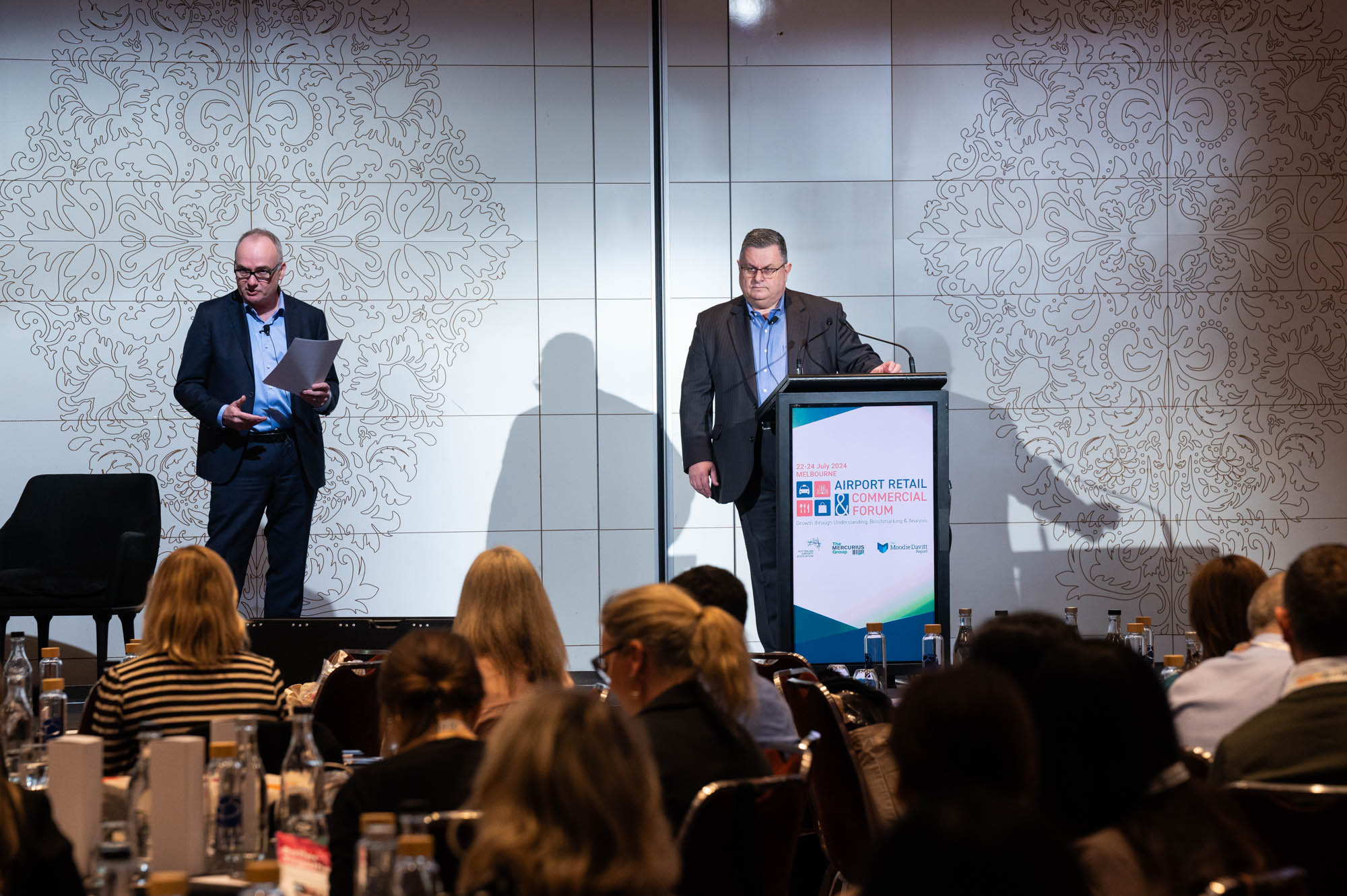AUSTRALIA. The government today announced new aviation security measures, harmonised with those introduced in the European Union on 6 November.
The new measures will take effect from 31 March 2007 and were broadly welcomed by the airport sector, which identified opportunities to extend the country’s well-established Arrivals shopping channel. But they were slammed by Australian Duty Free Association (ADFA) President Tom Thomas as inconsistent and unfair to downtown and landside retailers. Commenting on government claims* that there had been wide consultation with key stakeholders in the aviation industry, Thomas said: “There has been no industry consultation on the matter. The press release came out of the blue.”
Following the release of the new aviation security measures, an extraordinary board meeting of ADFA directors will be held next Wednesday by teleconference to discuss the issues.
The regime (see footnote* for full details) will restrict the amount of liquids, aerosols and gels (LAGs) that passengers can carry on international flights to and from Australia. As in Europe a landside-to-airside limit of 100ml per individual container (in a transparent resealable bag) with a total volume restriction of 500ml will be in place. But once airside travellers will be able to buy as usual (unless they are transiting through an EU, EEA or Swiss airport – when any LAG item over 100ml will be seized). Domestic flights are not affected.
“A priority issue is to ensure that hand luggage, including duty free goods, that is screened at an Australian airport is accepted through a US or European Union transfer point”“ |
Russel Balding, CEO, Sydney Airport Corporation |
The new measures were welcomed by management at both Sydney and Melbourne Airports. Sydney Airport CEO Russell Balding said the airport would add extra screening machines to minimise any inconvenience for passengers. “We will be active in communicating the new measures to passengers so that everyone is prepared for them.
“It is important that security measures are harmonised around the world so that travellers are not confused by the operation of different rules in different places.
“There is still work to be done by governments and industry to improve the harmonisation of security measures. A priority issue is to ensure that hand luggage, including duty free goods, that is screened at an Australian airport is accepted through a US or EU transfer point.”
Melbourne Airport CEO Chris Barlow said the measures were an important step toward improving consistency between Australian and international regulations. “Aviation is a global industry which by its very nature involves people and goods travelling between multiple countries.
“In addition to causing enormous confusion for passengers, the lack of international consistency on hand luggage restrictions in Europe and the US in recent months have had a major impact on airlines, airports and airport retailers.
“Today’s announcement signals a positive step toward harmonisation and Melbourne Airport will work to implement the new measures as smoothly as possible for all passengers.
“Increasing the allowances for inbound passengers wishing to purchase duty free products would go a significant way toward alleviating the ongoing impact from overseas restrictions”“ |
Chris Barlow, CEO, Melbourne Airport |
“It is good news that duty free purchases made beyond screening points can still be carried on all international flights to and from Australia. However, until other countries recognise and accredit Australia’s new measures, there will still remain a degree of confusion for Australian travellers.”
That point was echoed by Balding, who touched on the key challenge that faces the industry on an international basis – purchases by passengers who then transit through EU, EEA or Swiss airports. “There is still work to be done by governments and industry to improve the harmonisation of security measures,” he said. “A priority issue is to ensure that hand luggage, including duty free goods, that is screened at an Australian airport is accepted through a US or EU transfer point.”
In an indication that Sydney Airport plans to avoid the confusion so endemic in Europe due to weak communication, the airport company spelled out the current status in simple terms: “Regarding the impact of the new measures on duty free, there are three key points for passengers to remember:
– As of today it is business as usual. The new measures will take effect from 31 March 2007.
– Even after the introduction of the new measures, departing passengers will still be able to purchase their duty free after screening.
– Duty free purchases on arrival are totally unaffected.”
Balding highlighted the Arrivals shopping opportunity. “People will still be able to buy their duty free perfume, alcohol and tobacco on entering Australia. This is an opportune time for the government to expand the range of products that are available duty free for arriving passengers,” he said.
Barlow reiterated that message: “We will support the Federal Government in actively encouraging other nations to recognise and accredit these new measures. In the interim, increasing the allowances for inbound passengers wishing to purchase duty free products would go a significant way towards alleviating the ongoing impact from overseas restrictions.”
“Are these politicians living in the real world? Has he thought through the impact these regulations will have on all non-airside stores, duty free or otherwise?“ |
Tom Thomas, Owner, Gateway Duty Free and President, Australia Duty Free Association |
But today’s announcement got short shrift from Tom Thomas, President of the ADFA and Managing Director of Perth downtown travel retailer Gateway Duty Free.
He told The Moodie Report: “This is the news we have been half expecting and, yet again, it’s inconsistent in its application. These new Australian regulations relating to the carrying on of liquids will only apply to international flights. Is it only on International flights that liquids carried aboard are a threat? Are potential terrorists not interested in domestic aircraft? Correct me if I’m wrong but wasn’t the incident referred to as 9/11, the one that ushered in the ‘War on Terrorism’, carried out against airlines on domestic flights?
“If a container of liquid or gel, over 100ml, is unsafe to carry on an international flight then it’s damn well unsafe on a domestic flight too. Conversely, if a litre bottle of whisky, purchased from a downtown store, IS considered safe to carry onboard a domestic flight from Perth to Sydney, then it should also be safe to carry it on a flight from Perth to Singapore.”
Thomas said the duty free industry, so badly affected by changes, had not been sufficiently consulted. “Where was the industry consultation on this matter? Mark Vaille, the Minister for Transport and Regional Services (a former farm machinery salesman and stock and station real estate agent) is the minister responsible. Are these politicians living in the real world? Has he thought through the impact these regulations will have on all non-airside stores, duty free or otherwise, whose business consists of selling these products?”
Asked if Australia would now mirror the transit limitations in place in Europe, for say a London-Sydney-Christchurch flight, and confiscate any LAG items over 100ml at the transit security point, Thomas replied: “I guess so. I don’t think that they’ve thought that far ahead but I would assume you’ll have it confiscated.”
The Nuance Group CEO Australia and New Zealand Christian Strang told The Moodie Report that he also thought that would be the case, adding: “It was not specifically mentioned but I imagine these will be the kind of details to be sorted out between now and 31 March. We also have to understand the implications for people boarding flights to Australia from around the world… they are not clear yet.”
In a separate media statement Strang commented: “The Nuance Group is pleased that the Government has allowed until 31 March 2007 for consultation and planning before implementing the new measures”. He said that Nuance-run Downtown Duty Free, which operates the duty free shops in the secure areas of several of Australia’s major airports, will work closely with the authorities and with each airport to ensure that passengers understand the new arrangements and continue to take advantage of the duty free shopping opportunities.
He added: “Passengers will continue to be able to use our shops on the airside of the checkpoint in the same way they always have. Once passengers have passed through the security checkpoint they will be able to shop comfortably in the airside departure hall as usual. Arrivals shopping and pre-ordering duty free for collection when you land will also remain unaffected. These remain the ultimate hassle-free alternatives to purchasing duty free overseas”.
On the issue of harmonising Australian measures with those of other countries, he said: “It is essential that countries work together and achieve harmonisation of security measures across borders. The Nuance Group welcomes the intention that these measures will be consistent with measures in the US, Canada and the EU. This will eliminate passenger confusion and mitigate adverse commercial consequences.”
*FOOTNOTE: The measures were announced today by Deputy Prime Minister and Minister for Transport and Regional Services Mark Vaile. He said that the Australian government will introduce enhanced security measures to limit the amount of liquids, aerosols and gels that can be taken through the screening point at airports for international flights. These measures only apply to flights to and from Australia.
“The world has changed over recent years and Australia’s security arrangements need to change accordingly. The foiled terrorist plot in the UK in August this year demonstrated that there is a need to restrict the quantity of liquids, aerosols and gels permitted onboard screened aircraft,” Vaile said.
“As from March 31 next year only small amounts of these substances (100 millilitres per container) including drinks, creams, perfumes, sprays, gels and toothpaste will be permitted to be taken through the screening point onto international passenger aircraft as carry-on baggage, in a resealable transparent plastic bag no larger than one litre which must be screened separately. Exceptions will be made for passengers with medical conditions and baby food intended to be consumed onboard.
“These measures will harmonise Australian practice with international action that has recently been taken by the US, Canada and the EU and the recommendations by the International Civil Aviation Organization.
“Passengers may take onboard items purchased after the screening point, including duty free.
“The Australian government recognises that these restrictions will affect the industry and the travelling public but we will always put the public’s safety first,” Vaile said. “The Department of Transport and Regional Services is consulting widely with the aviation industry and other key stakeholders as we develop our implementation arrangements, which will be supported by a fully developed public awareness campaign.”





